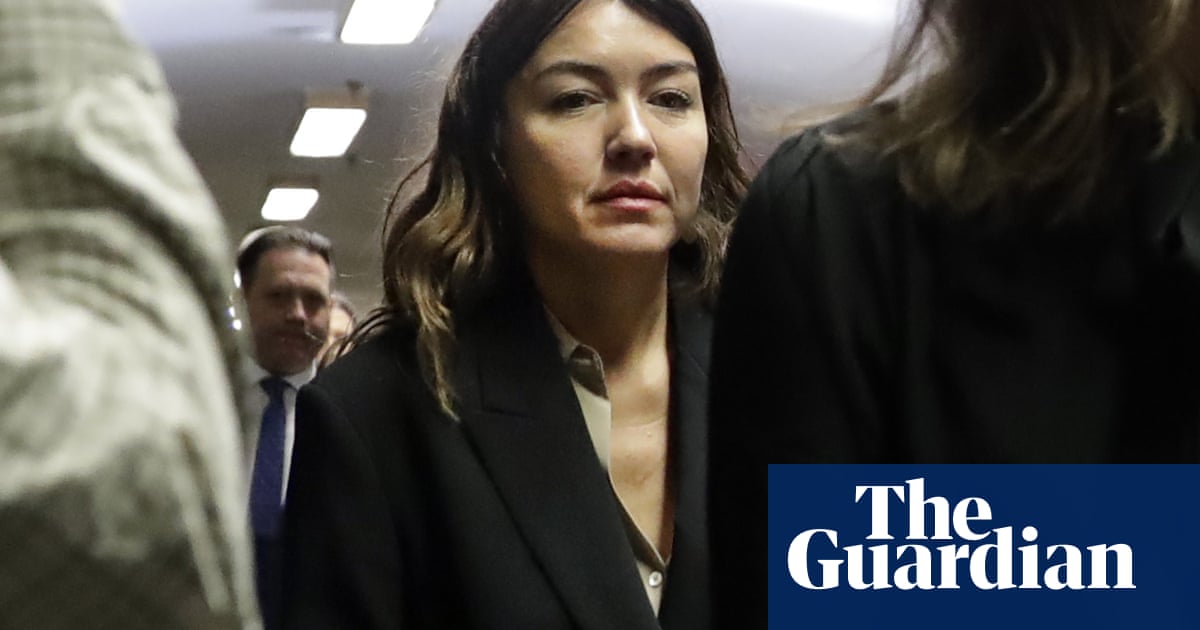The first of three accusers expected to testify at Harvey Weinstein’s rape retrial took the witness stand on Tuesday, reprising her testimony from his first #MeToo trial five years ago.
Miriam Haley, a former TV and movie production assistant, alleges that the former movie mogul forcibly performed oral sex on her at hisNew YorkCity apartment in 2006.
The Manhattan district attorney, Alvin Bragg, who inherited the case from his predecessor, watched from the courtroom gallery as Haley testified. Her lawyer, Gloria Allred, sat behind Bragg.
Haley began by speaking about her hard upbringing in Finland and Sweden, her interest in the performing arts and her entry into the movie business as an assistant to the late Rocky Horror Picture Show producer Michael White.
Haley is on the witness stand at the start of the second week of testimony in Weinstein’s retrial. Two of her friends, who said she told them about the alleged assault, testified last week.
Haley initially expressed some reluctance to testify again after a New York appeals court last year overturned Weinstein’s landmark conviction and ordered a new trial.
The state’s court of appeals threw out Weinstein’s convictions and 23-year prison sentence and ordered a new trial after finding that the original one was tainted by “egregious” judicial rulings and prejudicial testimony.
Haley did not look at Weinstein as she entered the courtroom through a side door and walked swiftly to the witness stand, but was compelled to when a prosecutor asked her to point him out in court. The ex-studio boss, sitting between his lawyers, looked at her as she passed by and again as she identified him from the stand.
In a sign of how hard-fought Haley’s testimony is likely to be, she had barely started answering a prosecutor’s questions when Weinstein’s attorneys objected to queries about physical abuse that she says she suffered as a child. She was allowed to answer, and her voice caught briefly afterward before she composed herself.
Weinstein’s lawyers objected to similar questions at his first trial and were mostly overruled without much discussion. This time around, with a different judge presiding, they’re redoubling their efforts to peel away outer layers of testimony that they say is irrelevant or likely to confuse jurors.
Weinstein, 73, faces charges involving two women from his original trial in 2020: one count of criminal sex act in connection with Haley’s allegations and one count of third-degree rape for allegedly assaulting then-aspiring actor Jessica Mann in a Manhattan hotel room in 2013.
He’s also being tried for the first time on an allegation from Kaja Sokola, a former model who wasn’t a part of the first case. Weinstein is charged with one count of criminal sex act for allegedly forcing oral sex on Sokola at a Manhattan hotel in 2006.
Mann and Sokola are also expected to testify.
Weinstein has pleaded not guilty and denies that he raped or sexually assaulted anyone.
Haley testified at the 2020 trial that Weinstein pushed her on to a bed at his Manhattan apartment in June 2006 and forced oral sex on her, undeterred by her kicks and pleas of, “No, please don’t do this, I don’t want it.”
Two of Haley’s friends testified last Thursday that she had told them about the alleged July 2006 sexual assault around that time.
Elizabeth Entin, Haley’s former roommate who also testified at the first trial, said a shaken Haley told her that month that Weinstein had forcibly performed oral sex on her. Entin said she suggested Haley call a lawyer, but her friend seemed disinclined.
Another friend, Christine Pressman, however, said she advised a “distraught” Haley not to go to the police when she made a similar disclosure to her in August or September 2006.
Haley, who has also gone by the name Mimi Haleyi, acknowledged in her earlier testimony that she kept in touch with Weinstein, exchanged warm messages with him, and accepted an invitation to his hotel room two weeks after the alleged assault, where he pulled her into bed for sex.
Under New York law applicable at the time, Weinstein was not being charged with rape in connection with Haley’s allegations.
